Okay, I’m back. Also at Royal Academy, alongside Lucian Freud, is Antony Gormly, a farily impressive mid-career retrospective, including some truly humongous works, six of which were commissioned or produced for this show, making full use (and more!) of the large gallery spaces of the RA.
The smallest work, 1999’s Iron Baby, isn’t even “in” the show, as it’s a rather subtle lump of metal on the floor of the RA’s courtyard; a baby, indeed, upon closer inspection.
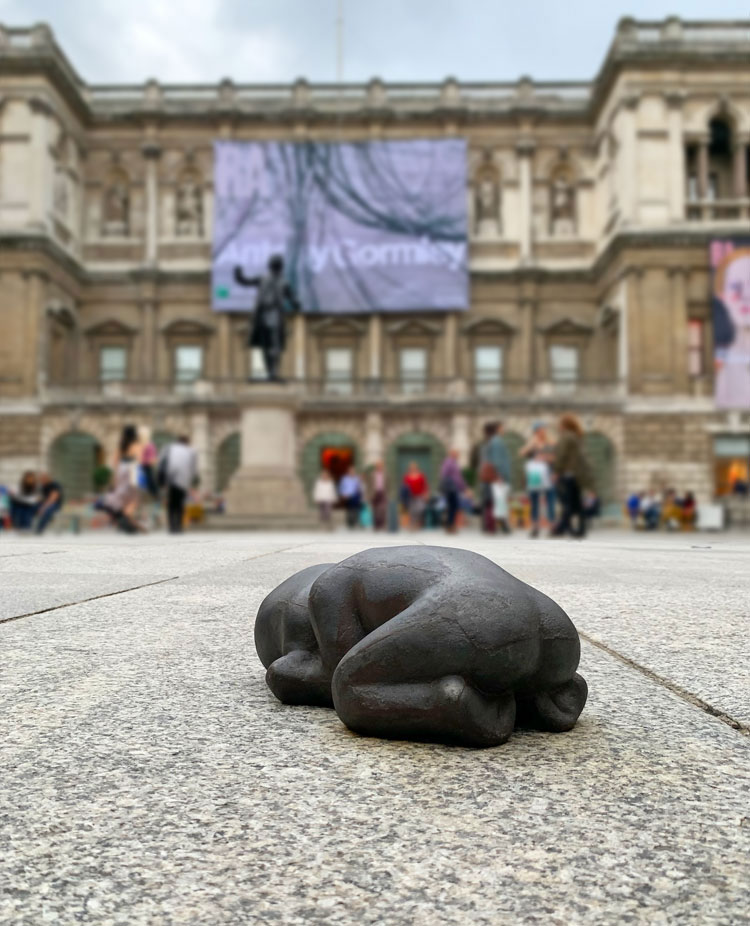
The first room of the exhibit, attended by a crowd exceeding even that in the Freud show, is filled with early works, from the 1970s – 80s. I honestly had a hard time getting to where I could appreciate many of these, for as soon as one could establish enough distance from a piece to properly look at it, someone would step in to fill the void and thus obscure the work. As a result, I adopted the technique of simply trying to see what I could, and take quick snapshots of what I couldn’t properly appreciate, for later viewing. Here’s some of those, in no particular order.
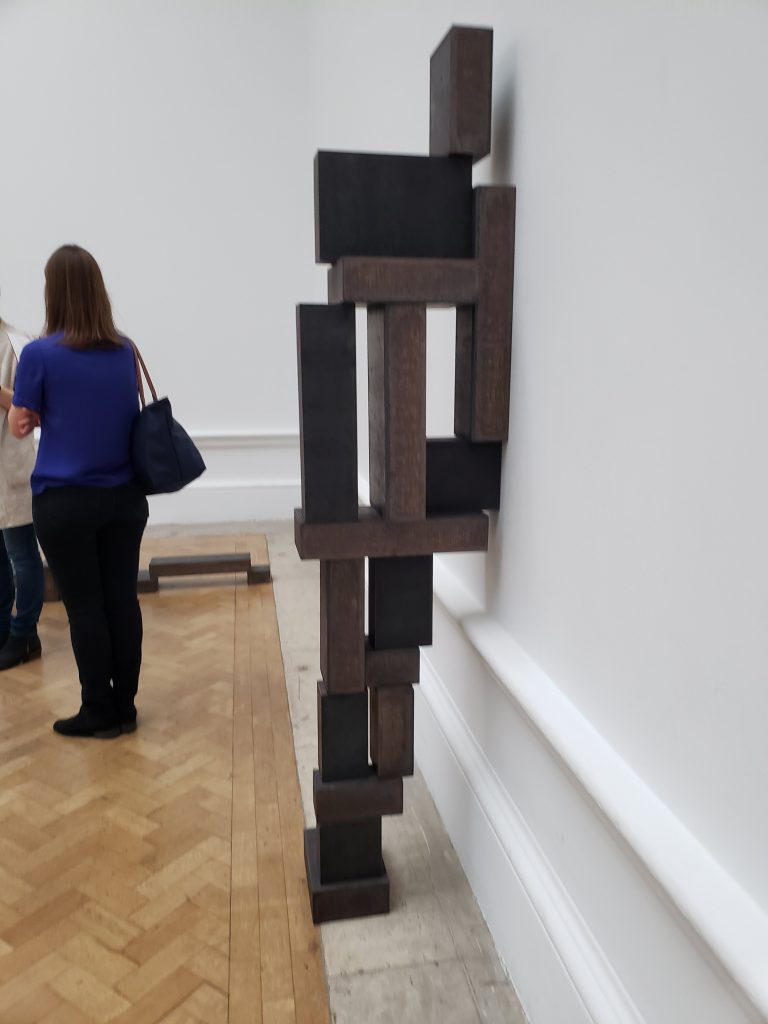
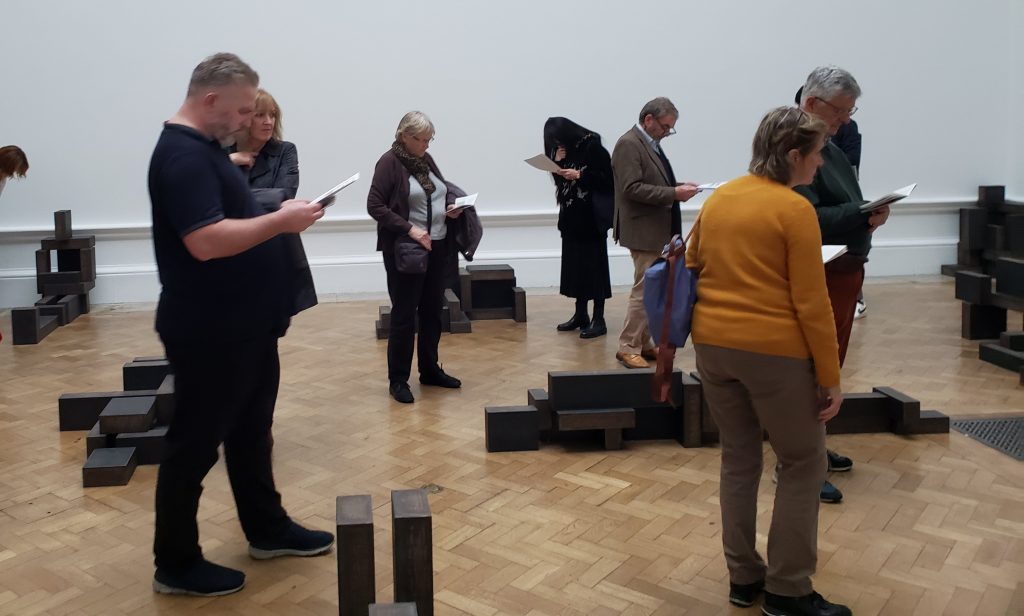
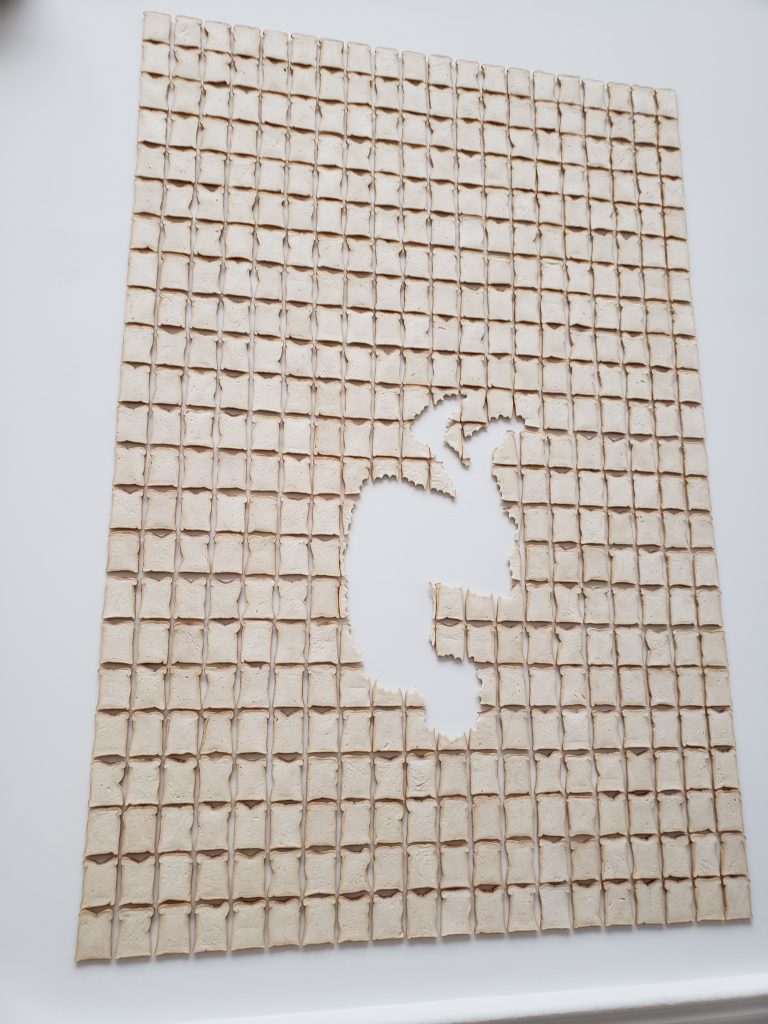
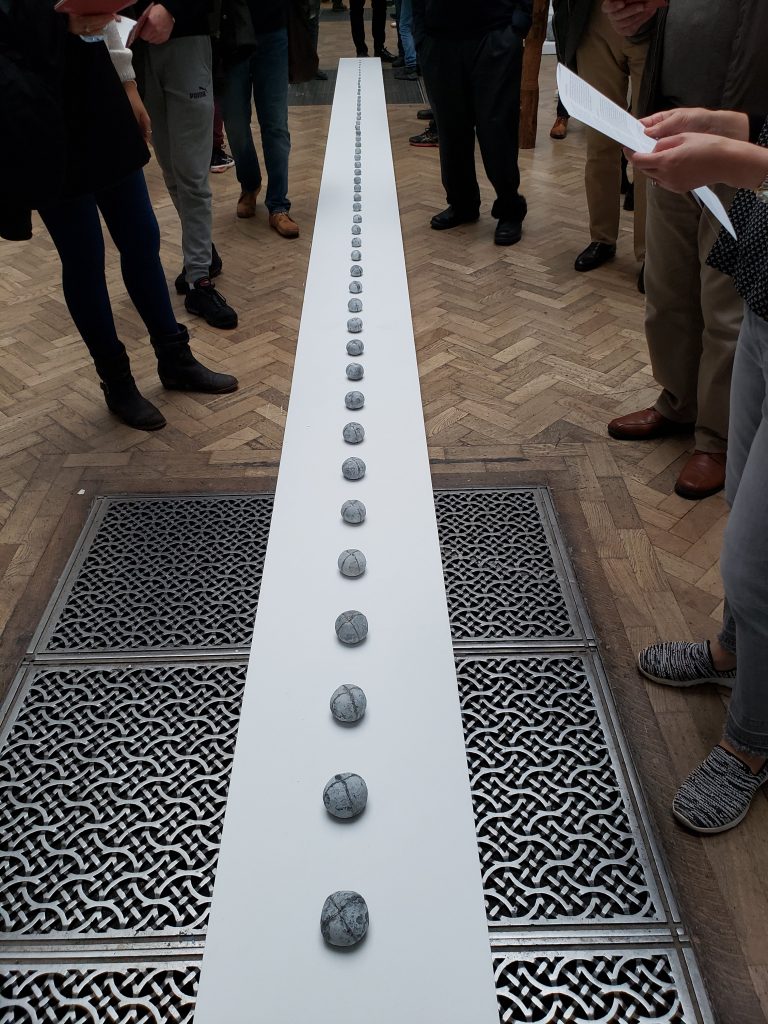
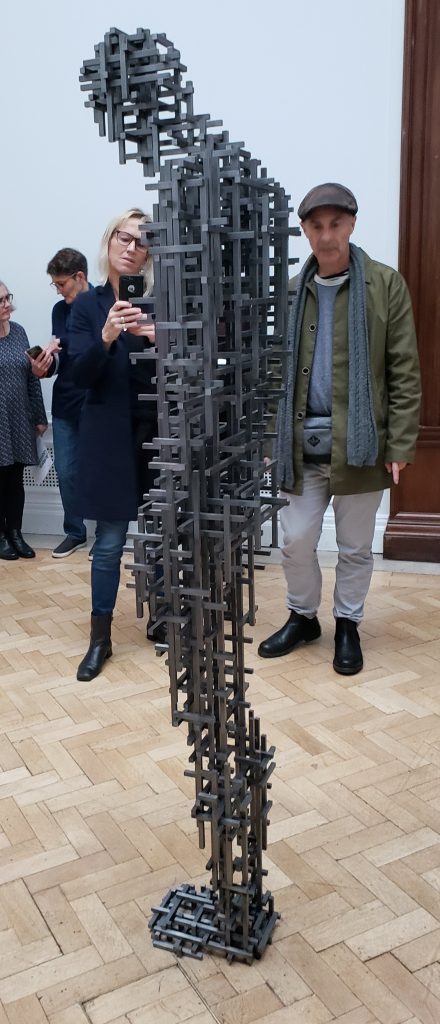
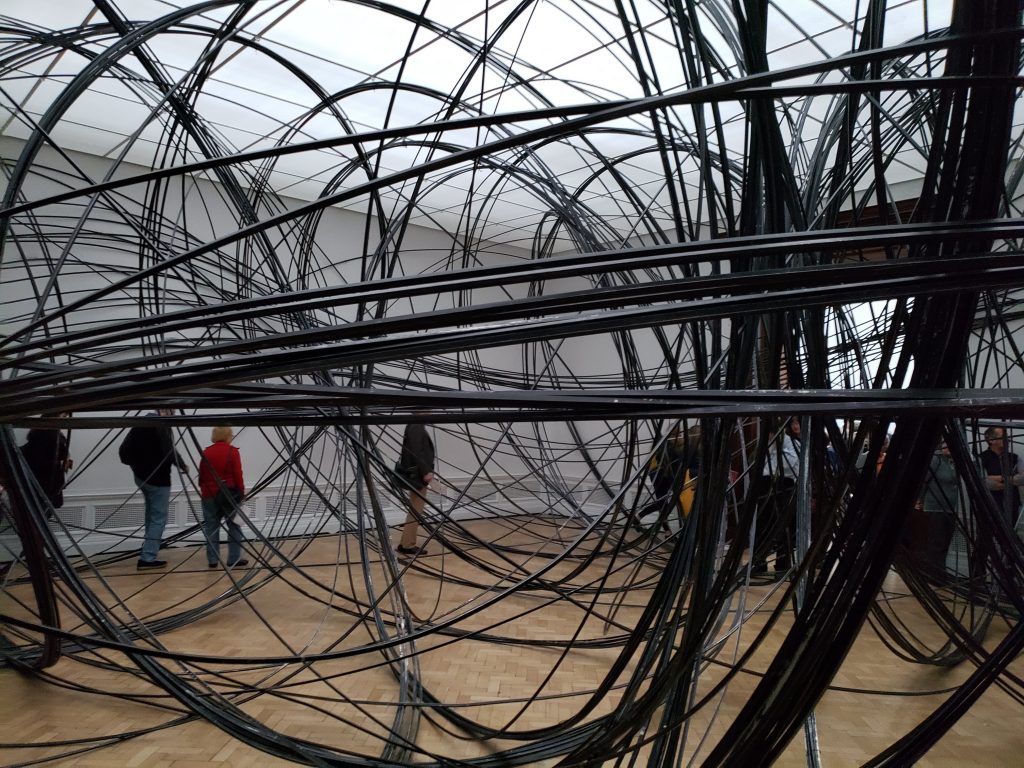
Now we are into the modern works, and these are huge, and huge crowd pleasers. Just getting around Clearing VII took effort. Not just from clamoring over and around the unspooled tubing, but working through the crowds of onlookers.
The next gallery contained Matrix III, 2019, a massive piece of lightweight construction. Twenty-one room sized cages made of construction steel mesh (“98% recycled” the pamphlet assures us) all intersect in the space above our heads in the large, central gallery. The effect is amazing, and finally calms the crowds somewhat. Some simply lay down on the floor beneath it, staring up, dazed.
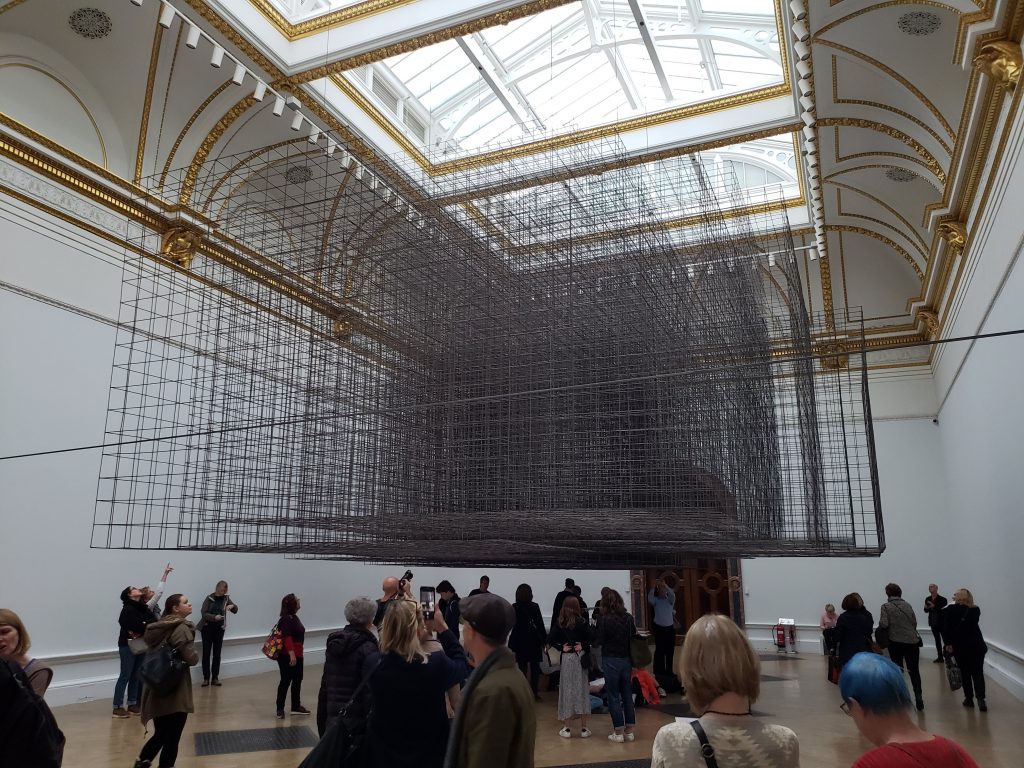
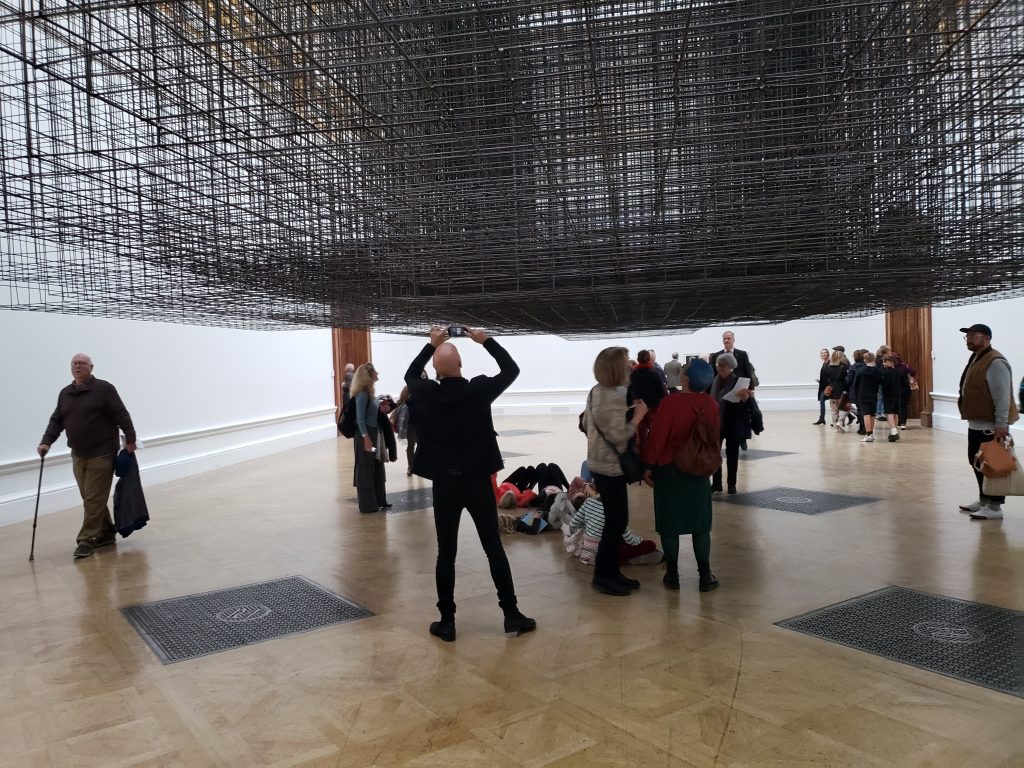
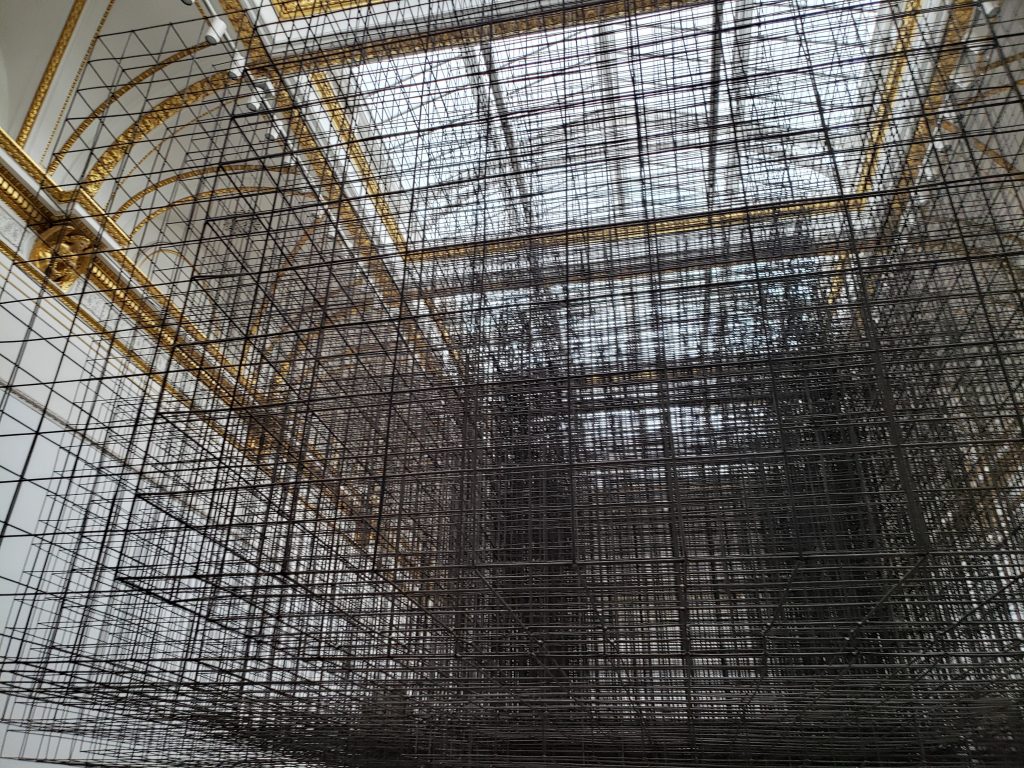
One of the most successful, and bewitching, pieces is Lost Horizon, 2019, in which countless of Gormly’s trademark male figures stand in a room, on all surfaces of a room, peering aimlessly out into space.
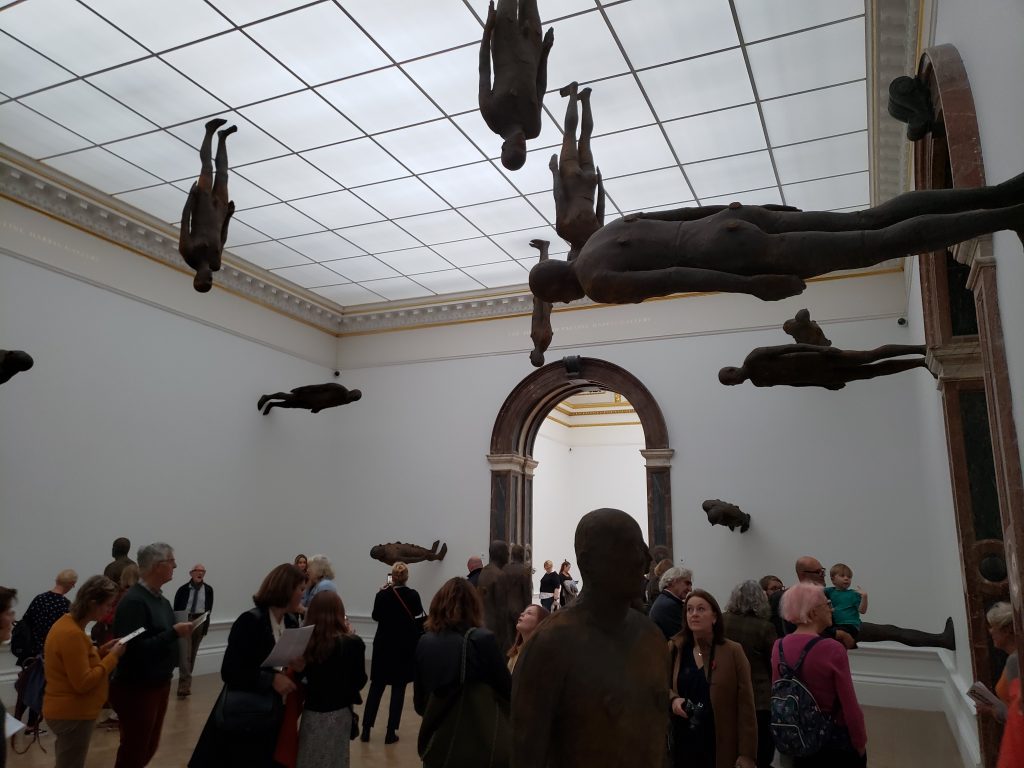
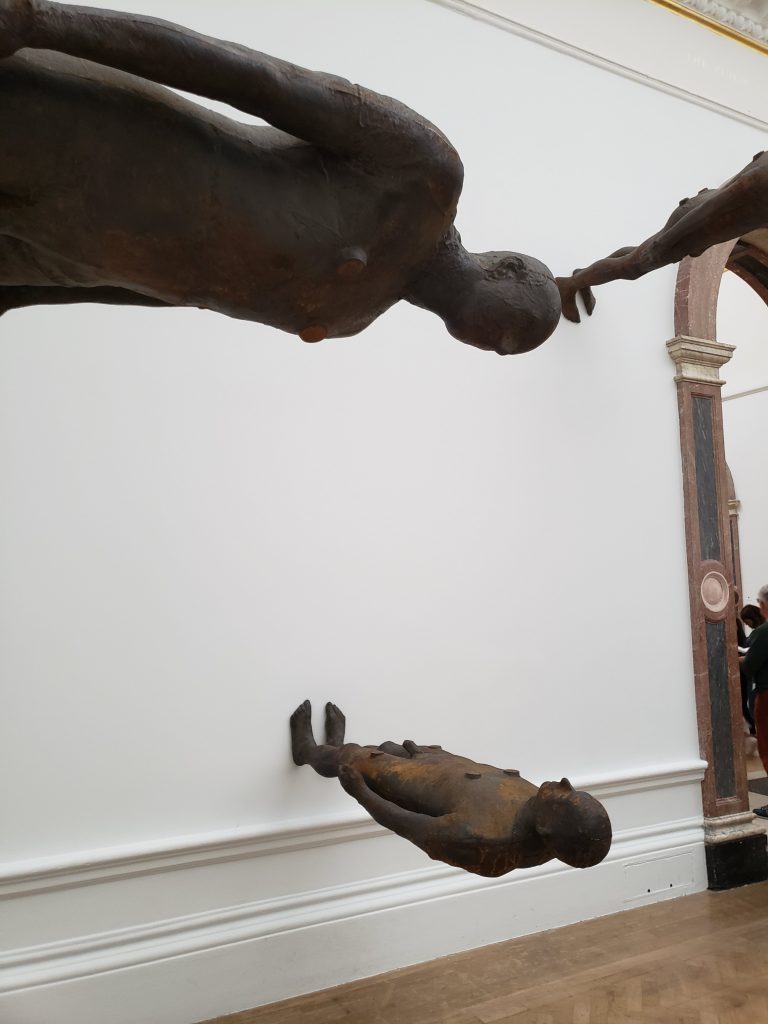
Two galleries further along, past cases of sketchbooks and drawings (almost impossible to get to and look at) is a confounding pile of metal, piled up just past the entrance to the next gallery. A part of this assemblage opens like a hungry maw into this gallery, providing a path for those adventurous souls. This is Cave, 2019.
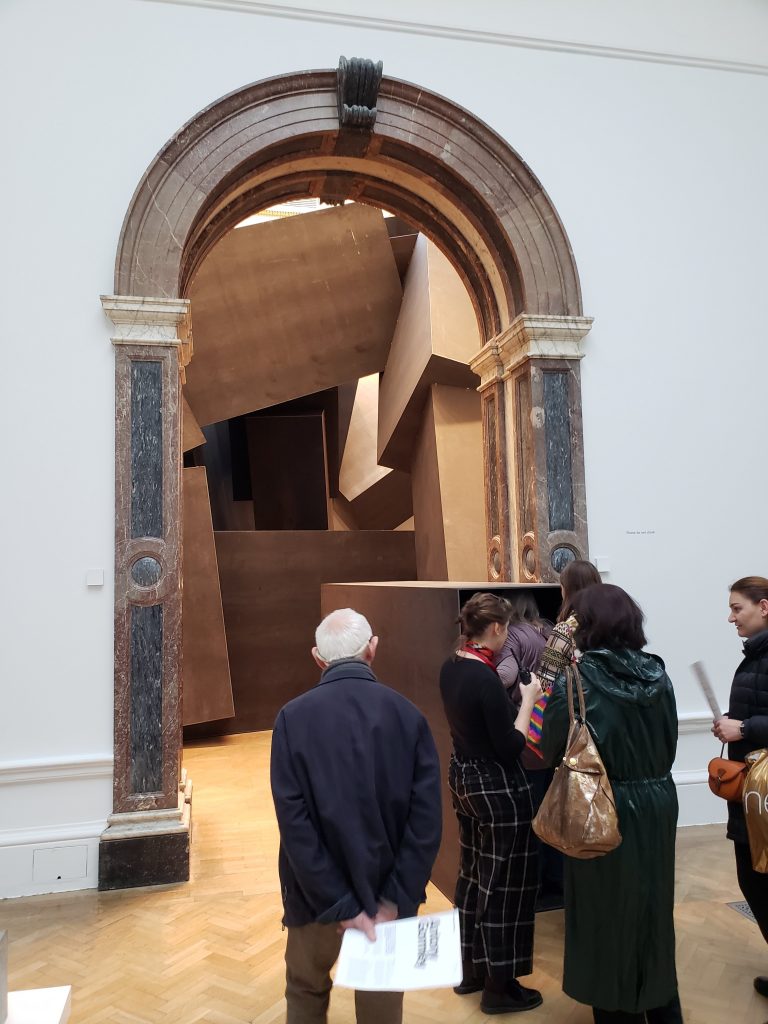
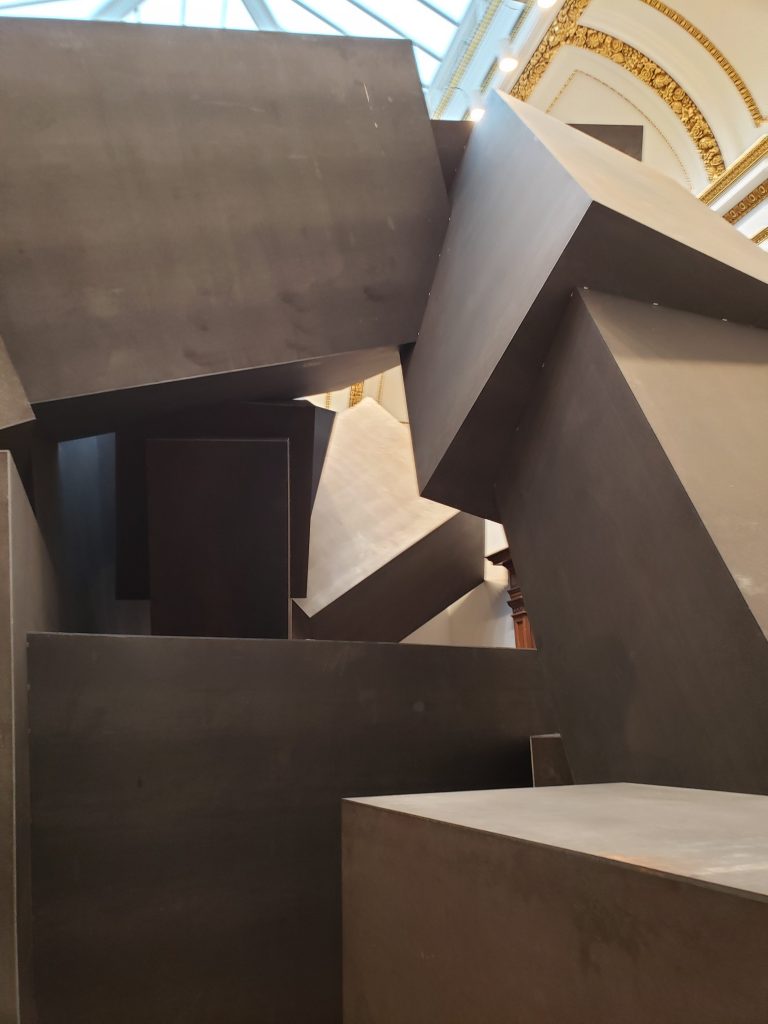
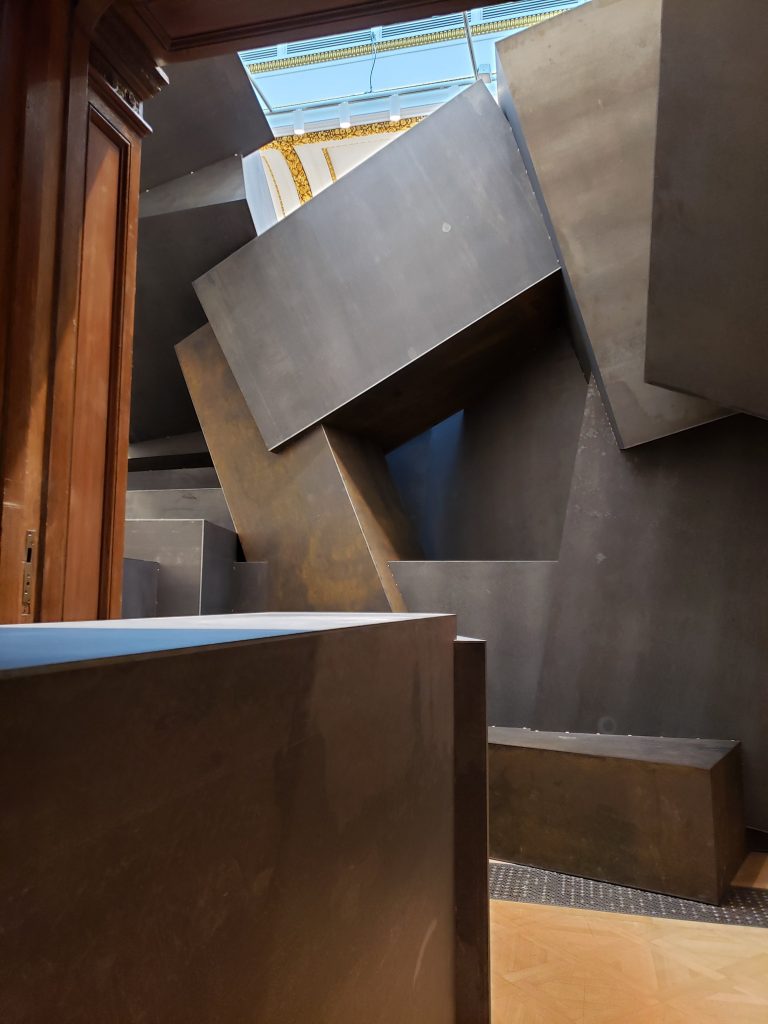
The next room, into which one spills if passing thru Cave, (Pawn, by the way, chose not to), is a smaller gallery with a door partially open to view Host, 2019, a large gallery, the floor lined with clay from the seaside, and filled with ocean water. The crowd simply piles up around this doorway, gawking and fumbling with phones.
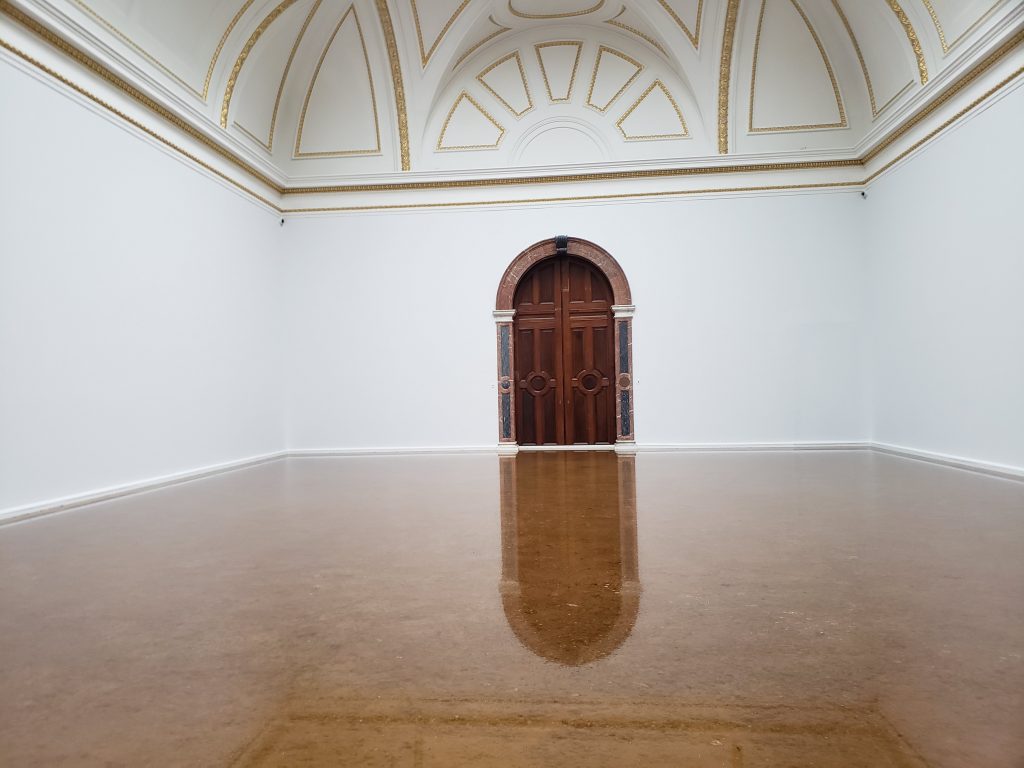
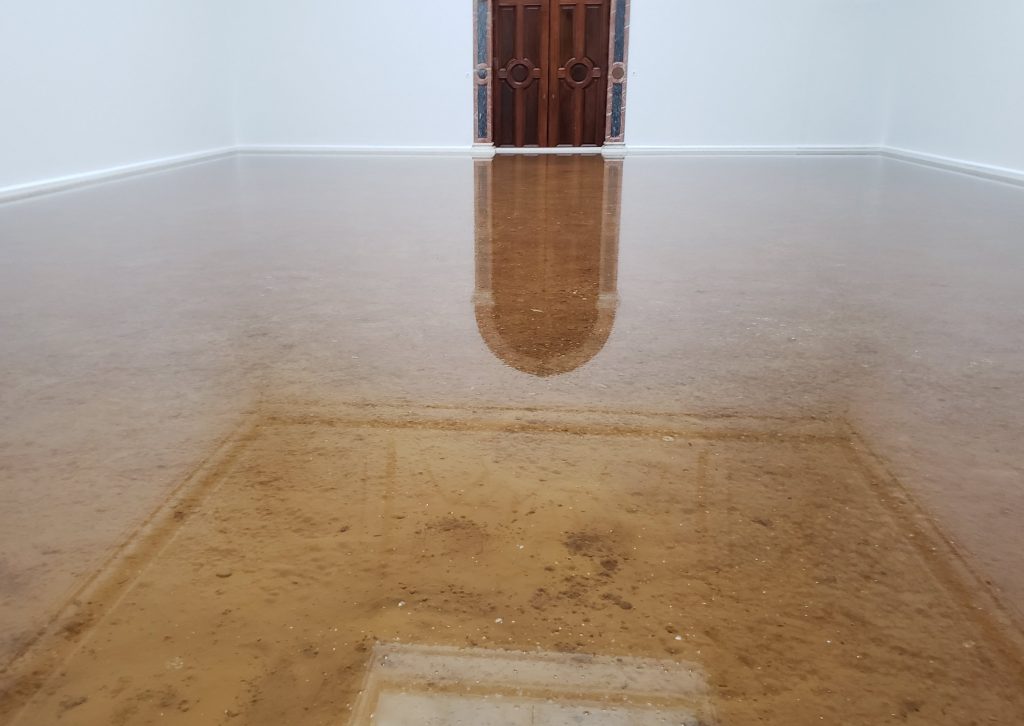
So what? I love Gormly’s work, in small doses. His human forms are so simple, resonant, and moving in their mute vulnerability. In this exhibit, with the large and imposing works, one sees more than those simple figures. It is wildly successful, as the crowds and their reactions reveal. Matrix III is an amazing accomplishment in realization, and is both jarring and contemplative at once. Host, less so, for me at least; same with Cave. Although the jumble of metal behind Cave is a joy, in its irreverence to the hallowed halls of RA. All in all, I enjoyed this exhibit, but, once again, for the crowds.
Antony Gormly, through 3 December 2019 at the Royal Academy, Picadilly.
